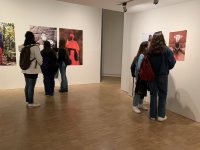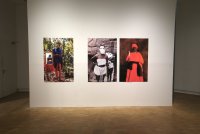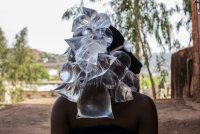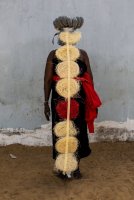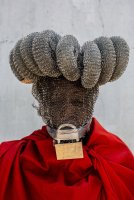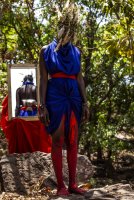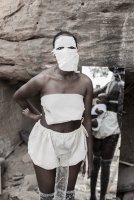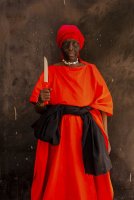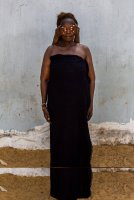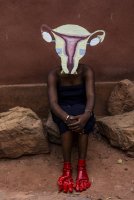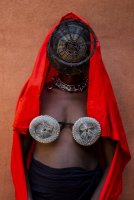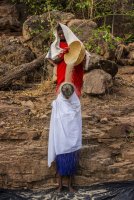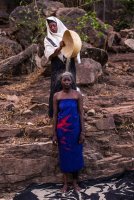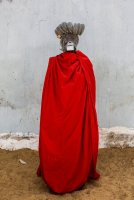Biographie
Born in 1980 in Mali, Fatoumata Diabaté began her career at the Centre de Audiovisual Training Centre Promo-Femmes in Bamako. In 2002, she joined the Centre of Promotion for Photography in Bamako (CFP), which aims to professionalise Malian photographers. There, she perfected her skills in black and white analogue photography.
Invited to numerous festivals, her work has since been the subject of several group and solo exhibitions in Mali, France and abroad. She received several awards, including the Prix Afrique en Création from the French Association for Artistic Action (AFAA) and was the winner of the 2020 Photographic Residencies of the Quai Branly. In 2021, she has been invited to exhibit as part of Africa 2020 on the sidelines of the Africa-France summit in Montpellier. In September 2022, she exhibited at the BnF in Paris for the reopening of the Richelieu site.
Inspired by the work of Malik Sidibé, she created her own mobile studio that she takes around the world: the Studio Photo de la Rue.
Attracted by portraiture and humanist and social photography, her work focuses on women and the younger generation. The oral tradition, beliefs and the question of transmission have always guided her research.
Since 2017, she has been president of the Association of Women Photographers and Artists of Mali (AFPAM).
Présentation
"One day, when I was still a child, my father told me that I was going to become a woman.
Neither they nor I knew what that really meant, and nobody knew that it was actually a matter of dying a little bit.
For them, becoming a woman was part of the tradition. To be a woman, you had to feel nothing and have your pleasure organ removed.
It was a matter of becoming respectable, like the others, and above all not to ask questions.
For me, becoming a woman meant nothing. Then they took me to her house, and I understood.
How can we give a right of expression to these women whose very being has been mutilated?
How to free, through photography, a word held in the meanders of our traditions and their taboos?
How can I begin this process of restoring my own image through that of all the these women photographed sharing what is their most intimate to give?
The women photographed in this series, like me, have not made the choice to lose a part of their identity.
Like me, their sex has been denatured, 'scrutinized’.
Through our common history, the series speaks of a process of
rebuilding this lost, stolen female identity, our intimate self lost forever.
This work was produced with the support of the musée du quai Branly / Jacques Chirac.

